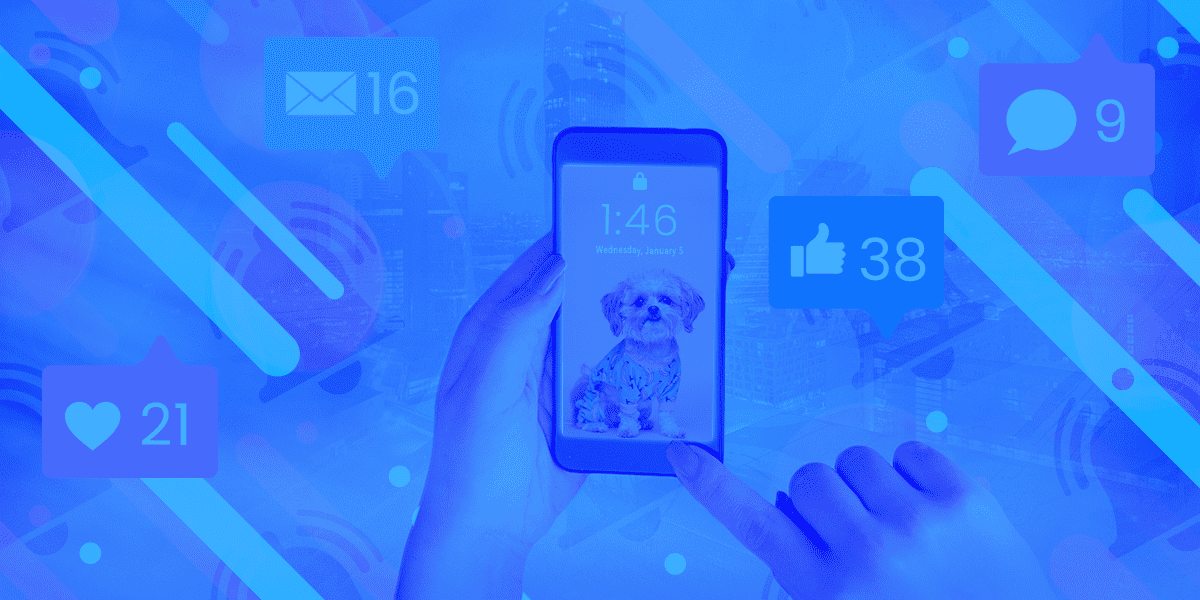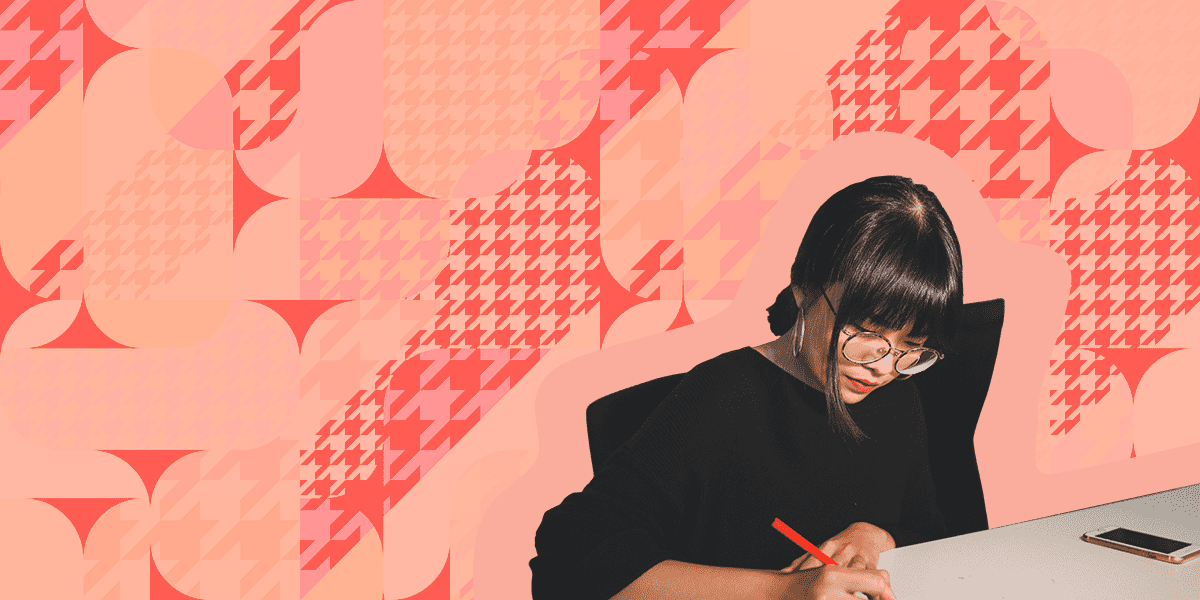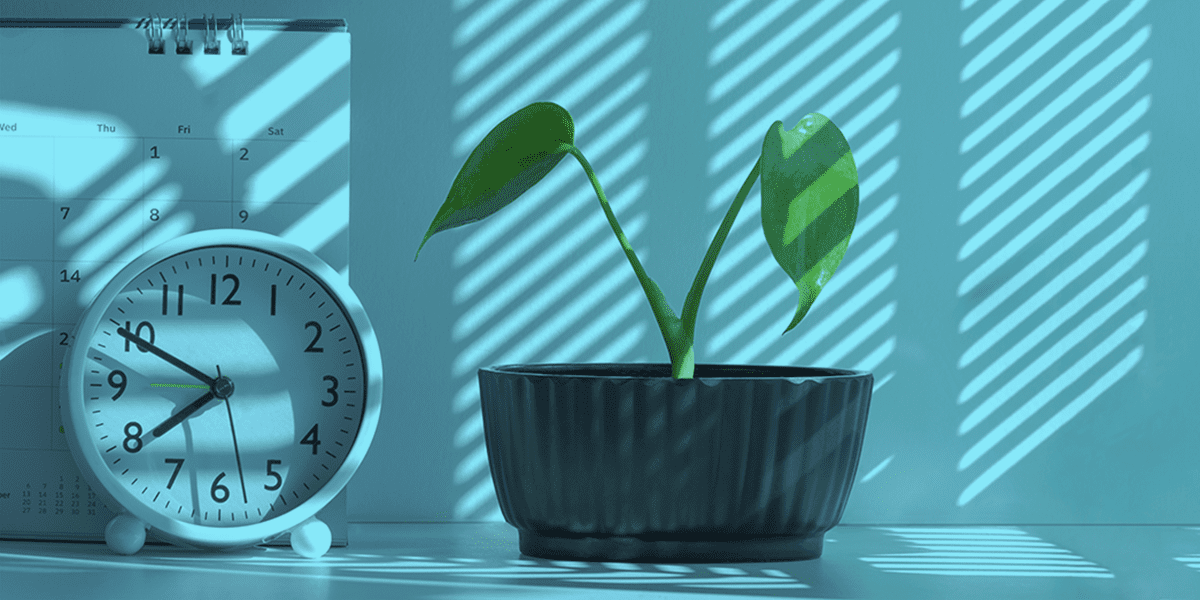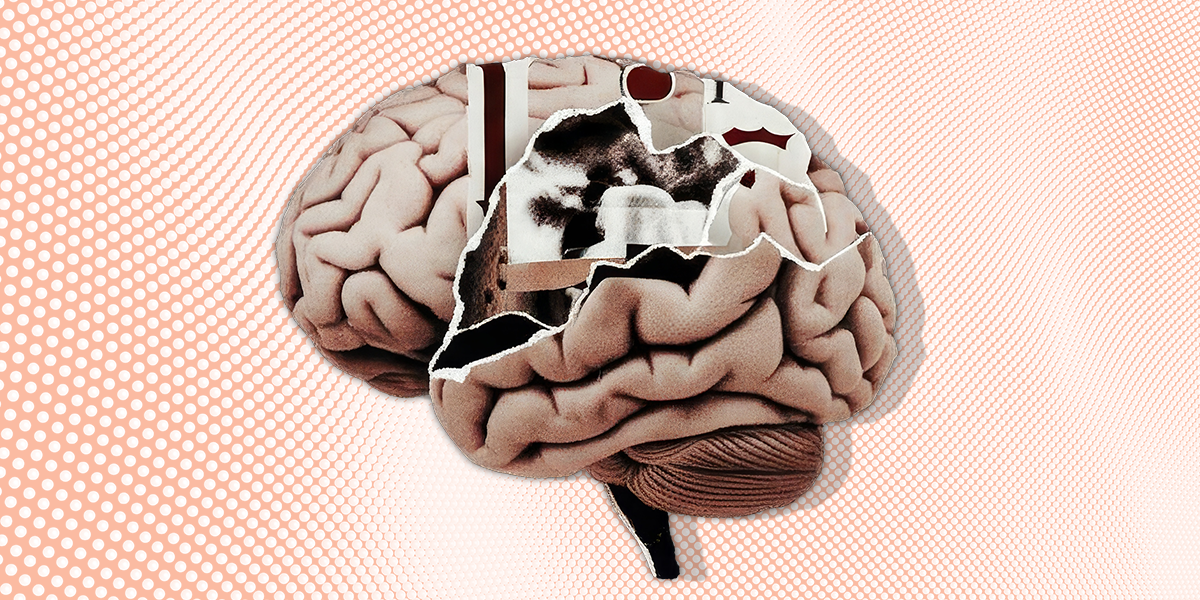
Entrepreneurs face a paradox: the tools meant to make business easier often lead to constant distraction, mental fragmentation, and eventual business owner burnout.
While others bounce between notifications, social media, and endless interruptions, those who master mindfulness gain the ultimate competitive advantage.
I’ve worked hard to build a thriving company while preserving my mental and physical well-being. That’s not to say I have it all figured out. Not even close.
But I have studied what the top entrepreneurs do to succeed, and these practices have transformed my business—and they can transform yours, too.
Over the past decade, I’ve learned that the path to sustainable success isn’t about working harder in a frenzied state.
It’s about cultivating the rare ability to work with intense focus and presence in today’s distraction-filled environment. (Easier said than done.)
These strategies have not only helped me grow my business faster but have allowed me to do so without the burnout that plagues so many entrepreneurs. The mindful approach to business isn’t just more effective—it’s more sustainable for the long haul.
Let’s start with my approach to mindfulness, and then I’ll break down action steps you can use to become a more mindful entrepreneur.
My #1 strategy for success (and how I avoid business owner burnout)
I’ve been meditating every single day for the past decade.
I don’t do it because I’m on the path to enlightenment. I’m not trying to suppress my ego and eliminate my desire like Eastern Philosophy teaches.
Honestly? I aspire for material wealth and meditation has been crucial to help me get it.
I meditate for the specific purpose of increasing my ability to focus so I can be more productive and build my business faster. It aids all of the activities in my business that require long periods of concentration like:
- Writing 2,000-word blog posts
- Developing a marketing strategy that takes hours per day and weeks on end to finish
- Taking 5 sales calls back-to-back and staying attentive the entire time
In 2025, one of the most valuable skills is the ability to concentrate in a distracted world.
Most entrepreneurs struggle to build their businesses because they can’t stay present long enough to perform cognitively demanding tasks for hours at a time, all of which are required to build a successful business.
They have “TikTok brain,” my pet name for the modern mind that is fragmented and splintered into thousands of pieces by things like short-form video content, notifications, emails, apps, ads, and everything else the modern world has created to shorten our attention spans, addict us to cheap dopamine, and make us less capable of deep, meaningful work.
If you want to win in business, understand that most of your so-called competition are incapable of concentrating on a task for a few minutes without opening up a tab on their computer, checking their phone, or going on social media—let alone for multiple hours.
A meditation practice will teach you how to be more mindful and present throughout the day.
Here are the mental prerequisites to understand:
- You’re not going to be “good at it”
- You’ll feel the pain of boredom and mental chatter
- You’ll want to stop a few minutes in
You only fix this by meditating in this state. There is no other way. Deal with it.
Here’s how I meditate:
- Set a timer for 20 minutes
- Focus my attention on my breath
- When my attention inevitably changes focus, notice without judgment and come back to my breath
At first, you won’t be able to stay in the present moment for more than a second or two before random mental chatter pops up.
As time goes on, you may be able to get a minute or two of pure presence (this is REALLY good).
You’ll never be able to maintain a state of pure presence for 20 minutes straight, but you should make the attempt anyway, knowing you’ll never reach that ideal.
To help you with this, Alex Hormozi has shared this mental framework (which I love): Stop thinking in “binaries” and start thinking in “spectrums.”
It’s not black and white: “You’re a focused person.” Or, “You’re not a focused person.”
It’s a spectrum: “How focused are you?”
Meditation will help you increase your ability to focus and stay present. Throughout the day, you can practice your ability to stay present and turn every moment into a chance to meditate.
Practicing presence in a distracted world
I have had a life-long struggle with staying in the present moment. I am the type of person who always focuses on the future. I’m thinking about what’s next on the horizon, looking toward the next goal, and thinking about what I don’t have (instead of appreciating what I do have!).
I also have a crippling phone addiction.
I have become more present, partially by realizing that the best way for me to get what I want in the future is to do what needs to be done in the present.
That means staying in the moment while I’m working, but I also practice presence during other situations that naturally cause boredom and mental pain (which can lead us to distraction). For example:
- Being stuck in traffic
- Waiting in a long line
- Sitting in the waiting room at the doctor’s or dentist’s office
I still lose more often than I win and succumb to my dopamine addiction, but I’ve gotten much better at staying present during the above scenarios, especially the traffic one (due to safety reasons).
During these mundane moments when most people reach for their phone, I will practice presence and focus on my breath. Over time, I’ve improved, which has helped me not just in business but in life as a whole.
I spent a good amount of time talking about the art of being present because it’s the most foundational skill set you can have if you want to be successful in business. The rest of the sections will be derived from this one.
If you want to read more about living in the present moment and gaining a renewed focus, check out these articles:
The mindful entrepreneur’s routine, habits, and protocols
I watched a video recently that changed the way I thought about a bunch of seemingly innocuous factors, that, after I watched the video, I realized were crucial to success in business.
The video was called “How to Focus for 12+ Hours a Day Like a Millionaire” by Charlie Morgan, a $10M/year business owner. You can check out the full video below:
I had heard similar principles and ideas from his mentor, Sam Ovens who currently runs Skool, an online community platform for course creators with over 10,000 businesses using it.
Sam started as a consultant in New Zealand, built multiple 7-figure businesses, and now runs a $100M+ consulting and software empire from New York. He’s known for his methodical, distraction-free approach to business building.
I’ve also heard similar advice from Alex Becker, a 9-figure business owner who runs one of the most successful ad-tracking software companies in the world called Hyros. So many people that I admired (and aspired to be like) kept giving this advice, so I decided to take it seriously.
The video mentions a bunch of mundane tips that can create real leverage in your life and business by becoming a more mindful entrepreneur, someone who is intentional about every aspect of his or her life.
The following strategies combine everything I’ve learned from these eight-figure entrepreneurs with strategies I’ve tested in my own life.
Let’s get started…
1. Clean up your diet for a sharper mind
A low-inflammation diet, along with avoiding complex carbs, is a game-changer.
Eating foods that cause body inflammation just makes your life worse. Body inflammation is linked to anxiety, depression, chronic fatigue, cognitive decline, reduced focus, and impaired decision-making abilities.
So in general, you want to eat non-processed single-ingredient foods like fruit, vegetables, fish, beef, chicken, etc.
And avoid the foods that cause body inflammation like processed foods, refined sugar, gluten, vegetable oils, dairy, and alcohol.
Charlie says to avoid complex carbs during your workday and save them for dinner. I agree.
I remember when I used to work at my 9 to 5 job and I’d go out for lunch and eat stuff like subs, burgers, pasta, etc. I would fight to stay awake in the afternoon, it was more difficult to concentrate, and I felt sluggish the rest of the day.
There’s science behind this:
When you eat carb-heavy meals, your blood sugar spikes rapidly, causing your body to release insulin which pulls that glucose from your bloodstream. This quick rise and subsequent crash in blood sugar levels leads to mental fog, fatigue, and decreased cognitive function—the infamous “food coma.” Your body diverts blood flow to your digestive system, drawing energy away from your brain when you need it most for focused work.
Personally, I fast. I don’t eat until about 1-2 p.m. Not because I’m a huge advocate for intermittent fasting, but because I just work better on an empty stomach. I feel sharper.
In the afternoon I will eat a carb-free meal like steak or salad with protein in it. And then I’ll begin to eat carbs when I’m done working for the day, like right before a workout.
As innocuous as it may seem, I’ve come to believe that body inflammation caused by diet may be the single most negative factor on concentration. It’s hard to stay focused when your body feels like it’s on fire, you know?
2. Declutter your digital world
This one is new to me, and I started doing it recently after watching Charlie’s video. In retrospect, it makes so much sense: Charlie optimizes the interface of his computer to stay more productive.
Here’s what I mean.
His entire desktop is empty except for one folder with needed items related to his business. The Dock—the bottom bar on his computer where most people have a bunch of apps—only has two items on it: Google Chrome and the trash can.
The bookmarks bar at the top of his Chrome screen has a folder related to his business on Google Drive and an app called Miro. He keeps zero files on his computer. He either uses a file locally and then deletes it afterward or he stores the file on his business Google Drive.
He logs out of every social media app after he’s done using it so he’s not tempted to scroll.
An app prevents his YouTube account from showing an actual video feed, which means he has to type in the specific information into search to find a relevant video. And while watching the video, he disables the “related videos” tab, playlists, and the comments section. All of it.
These lengths might seem extreme, but when you think about it, they’re not. So much productivity is lost by little distractions, unnecessary switching between tasks, and the chaos and clutter of having a disorganized environment.
Both my MacBook and iMac were completely covered with various screenshots I’ve taken over the year (screenshots automatically go to the desktop). I looked at the mess on my screen and reflected on how much subtle dissonance was caused by seeing a littered computer background every time I fired up my computer.
I am now in the process of creating a full-on “zen-style” computer setup where I only have the files I need and nothing more.
3. Use this workday protocol that just WORKS
This section is one of those boring recommendations for how to structure your day for productivity, but I can’t skip it because it’s effective. Charlie does it, Sam does it, Alex does it, I do it, and most successful entrepreneurs do it.
So, do it.
The way you start your morning shapes your day.
Here’s the daily ritual I’ve adopted after studying the habits of multiple seven and eight-figure entrepreneurs:
✅ I never check my phone within the first hour of waking up. Not for messages, not for email, not for news, not for anything, ever. Checking your phone first thing immediately fragments your brain. Just don’t do it. ✅ I keep my phone in another room while sleeping. This simple physical barrier eliminates the temptation to reach for it first thing in the morning. ✅ I begin each day with a short 20-minute meditation session, which centers my mind and primes me for focus. ✅ After meditation, I spend the first 2-3 hours of my workday on what Cal Newport calls “deep work”—the cognitively demanding tasks that create the most value in my career as an entrepreneur. This might be writing sales copy, developing strategy, or creating content. ✅ I tackle these high-leverage tasks before opening my email, Slack, or any other communication tools. Once you open these channels, you’re no longer working on your agenda—you’re responding to everyone else’s. ✅ I batch all meetings and calls for the afternoon after my deep work is complete. This makes certain my cognitive resources aren’t depleted when I need them most. ✅ I use time-blocking to structure my day. 90 minutes on and 20 minutes off. When it’s nice out I go for 20-minute walks outside. When it’s cold out…I tend to not take breaks.
Starting my day with reactive tasks like email or social media triggers stress hormones and makes me feel scattered. It’s nearly impossible to achieve the focused attention needed for high-quality work when I’m in that mental state.
By designing my morning around deep work and protecting it from distractions, I accomplish my most important tasks when my willpower and focus are at their peak. This often means I’ve created more value by noon than most entrepreneurs create in an entire day of reactive, distracted work.
The difference in output is staggering: One hour of truly focused deep work can produce results equivalent to three or four hours of distracted, multitasking effort.
This isn’t just more efficient—it’s also less mentally taxing.
And that helps prevent the business owner burnout that comes from long hours of low-quality attention.
I’m not preaching. And I don’t think I’m better than anyone because I have some magical morning routine.
These are simply helpful guidelines for myself. They make the work easier and make me more productive so the business makes more money, period.
If you want to build a seriously successful business, it’s time to get serious. Most people aren’t missing talent, skill, or capability. They lack conscientiousness, discipline, and diligence—all of which are byproducts of mindfulness.
For more strategies on how to achieve more, take a look at these posts:
4. Do this to build a lasting business (instead of burning out)
Funny enough, I met an entrepreneur who coached Sam Ovens, the business owner I mentioned earlier, here in my small midwestern city of just 115,000 people.
One day, a buddy of mine was at a coffee shop reading a book called “Dot-Com Secrets,” which talks about building sales funnels. The entrepreneur, who built his business using direct response copywriting and funnels, noticed the book. They sparked up a conversation and then exchanged information.
My friend and I co-founded a group of local entrepreneurs who meet to exchange ideas. Thanks to his connection with Andrew, the guy he met at the shop, we hosted the next meeting at Andrew’s (very large) home in town.
Andrew was successful, a millionaire no doubt. Not only was he a coach to Sam Ovens, but he also coached several high-level entrepreneurs I looked up to.
We had our meeting out at a campfire in the backyard of his house, and he told us about something he learned from one of his mentors named Dan Sullivan, founder of Strategic Coach and known as one of the top entrepreneurial coaches in the entire world.
Over the past 40+ years, Dan has personally helped thousands of entrepreneurs build successful businesses while simultaneously creating the lives they want.
The tagline on his website even reads:
“Power your business—without the burnout.”
Andrew described Dan as incredibly spry. Apparently, Dan mentioned his “25-year vision” for the future, even though he was currently in his 70s.
Dan’s advice? Intentionally take time off. Schedule time to NOT work on your business.
Because business is a marathon, not a sprint:
@workingstudentlife It may take time, but you CAN do it!! 🔗 in our byo for some tips to keep going 😏 #entrepreneurmindset #businessmindsetcoach #mindsethacksforbusiness #businesshacksontiktok #collegestudenttip
And while many entrepreneurs can acknowledge the significant “building” time involved, they misunderstand the best way to get ahead.
Hint: it’s not by working yourself to death.
Andrew talked about how Dan’s advice to take time off went in one ear and out the other when he was in his late 20s and early 30s. But now—in his early 40s with a wife and two small children—he realized that having more time off with the ability to immerse himself in and enjoy his personal life completely gives him more energy to work on his business.
Many people are halfway in.
They are never truly having fun, nor are they truly working.
Instead, they think about having fun while they work and think about work when they’re supposed to have fun, which means they never genuinely enjoy anything, nor are they very productive.
The trick is to train yourself to be 100% on and 100% off. When you work, you work. When you relax, you relax.
Often, people can’t relax properly. They say they are watching TV to wind down but then check their phone the whole time.
You can see what I’m getting at by now: Whatever you’re currently doing, fully do it.
I’ve implemented this wisdom in my own life, though I’ll be completely honest—I only have one freedom day per week.
I’m still too tied to the grinder mentality to do more, even though I know intellectually that I should schedule more breaks. This is a work in progress for me, and I share this because I suspect many of you reading this are in the same boat.
We know what we should do, but breaking free from the hustle culture mentality takes time.
But even with only one freedom day, I’ve noticed significant benefits in how I approach my work.
Strategic time off isn’t just about avoiding business burnout, it’s a growth strategy for your business.
I’m working toward increasing my freedom days gradually as I build more systems and team capacity in my business. The most successful entrepreneurs don’t work the most hours; they work the most intentional hours.
Now you’ve got the playbook to avoid business owner burnout
You don’t need to hustle harder, work longer, and push through pain to succeed.
The practices I’ve shared—meditation, digital minimalism, strategic eating, morning deep work, and scheduled time off—aren’t just feel-good habits. They’re the unfair advantages that create sustainable success.
I’ve been meditating for a decade—not to reach enlightenment but to build a thriving business.
I’ve optimized my devices, not because I’m obsessive but because distraction kills profit.
I fast until the afternoon, not because of some health trend but because my mind works better on an empty stomach.
The entrepreneurs crushing their competition aren’t working 24/7. They’re working with complete presence for fewer, more focused hours.
In 2025, the ultimate competitive edge isn’t time logged—it’s working with higher quality attention. In a world of entrepreneurs with “TikTok brain,” the mindful business owner wins.














